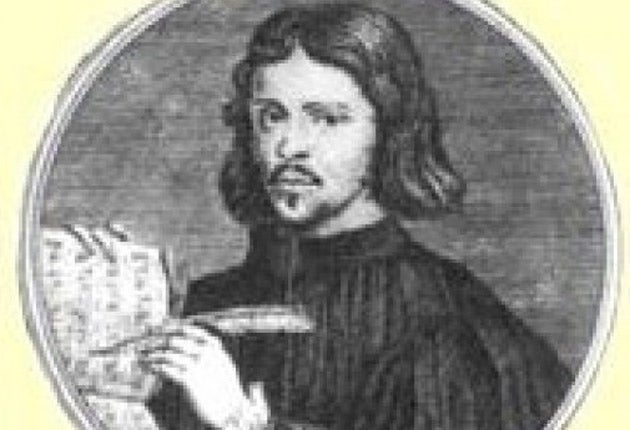Lost choral masterpiece finally finds a home... in the pop charts

Alessandro Striggio's 1566 mass, performed by 40 choristers, sees voices, strings and brass meld into a jaw-dropping harmony.
The mass was first performed in the 16th century, touring Europe, before being lost in the mists of time.
Several years ago, the work, Missa sopra Ecco sì beato giorno, was rediscovered in the Bibliothèque Nationale in Paris, where it had been miscatalogued. In 2007, it was given its first modern performance at London's BBC Proms. Now, a new recording of the work has made its debut on the pop charts at number 68, beating the likes of Bon Jovi, George Harrison and Eminem. It is extremely rare for core classical music releases to appear in the British pop charts. The recording is number two in the classical listings and there are further plans for a live touring performance to coincide with the London 2012 Olympics.
"I think people are interested, for starters, because of freak aspect of it," said Robert Hollingworth, 44, conductor and founder of vocal group I Fagiolini, which recorded the work.
"We will see how it fares after several weeks. You get more from it the more times you listen. The real question is: how many of the voices can you actually hear? It's been so carefully recorded by the engineers that I think you can really pick up on how many people sing in the recording."
Striggio is believed to have left copies of his work in several of the places where he toured it, including the courts of Albrecht V in Munich and Charles IX in France. Because of copying errors on the original manuscript and card catalogue, when the French version eventually ended up in the Bibliothèque Nationale, it was attributed erroneously to "Alessandro Strusco" with 40 voices being altered to "four voices". The work was recovered by British musicologist Davitt Moroney, who also conducted the 2007 Proms performance.
The release also features a version of Thomas Tallis's Spem in alium, which is believed to have been inspired by Striggio's works. Tallis lived between 1505 and 1585 and was a favourite of Queen Elizabeth I. That piece is known for being incredibly technically advanced for its time.
"To have the piece that inspired Tallis's work recorded with care and to find out it was such a good piece was a great find," added Mr Hollingworth.
"That our group of musicians got it right first time is additionally impressive. With the surround sound it is really fantastic. It can be an unpractical thing to perform live, but in this way you can appreciate its intimate parts, at the level of sacred conversation, as well as its grand scale."
Striggio is believed to have lived from 1536 to 1592 and was a court composer for Florence's Medici family. According to Hollingworth, he wrote the mass in 40 parts because the Medicis liked "to make a big stink and money wasn't a problem".
Universal Music Group's Decca Records used five choirs to record the album in Tooting's All Saints Church last year, employing authentic period instruments including a lirone, a precursor to the cello, recorders, and lutes. Mr Hollingworth said instruments took the place of some of the vocal parts, which was an accepted practice at the time.
The album also went to number one in the iTunes chart on the day of its release.
Join our commenting forum
Join thought-provoking conversations, follow other Independent readers and see their replies
Comments